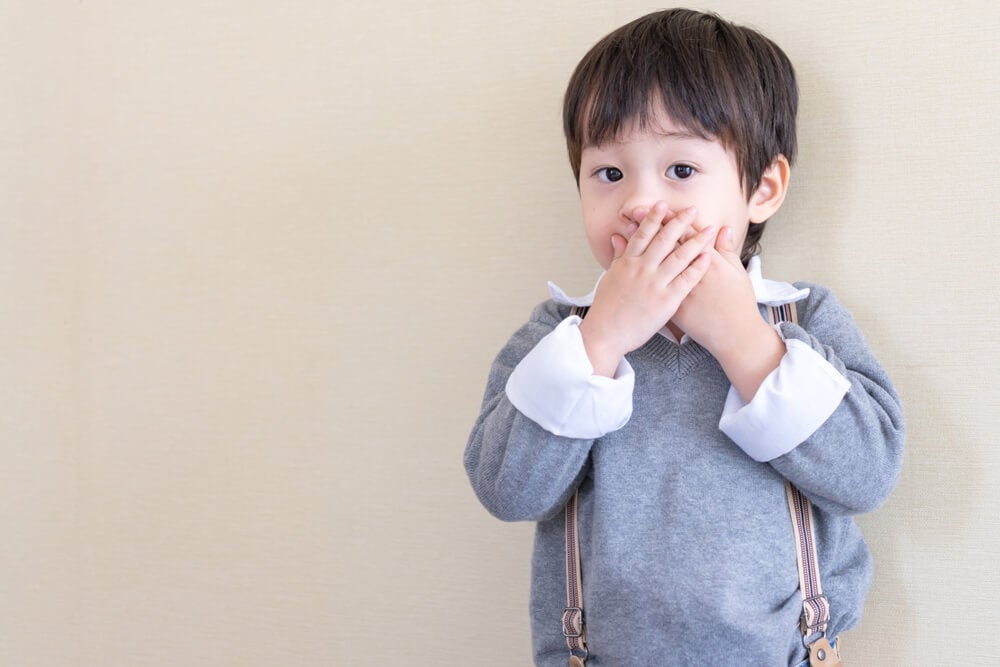A quiet child who observes the world of singing and obeys at first is not always a happy child no matter how practical it is for the people around him, many times, when we feel fear, despair or shame, we tend to hide in a small Therefore, the ideal is to teach respect, not educate through blind obedience, which part of the same anguish that steals identities.
We are not mistaken when we say that the issue of obedience is an overrated and even misunderstood aspect of many families. In addition, the classic phrase “ensuring happiness is in obedience” is often heard from the mouths of many fathers and mothers. there is no shortage of parents who take pride in themselves when they see their children follow the orders they receive.
- Blind obedience is not the same as intelligent obedience.
- No.
- Especially if applied out of fear.
- Even if the child learns from a young age that the most important thing is to please the other.
- Leaving aside his own needs.
- Criteria and desires.
- Sooner or later the day will come when this child will no longer be considered important.
- It can happen when you also stop defending yourself.
- Allowing others to control you the way you want.
“The goal of education is to show people how to learn for themselves. The other concept of education is indoctrination, Noam Chomsky?
There are boy scouts, those who touch everything, look at everything and ask questions, occupy the seats with insatiable curiosity. They’re happy kids. On the other hand, there are also silent children. A little more reserved, but they have no trouble connecting. Just find a theme that interests you to see them shine and show the sensational richness they contain. They’re introverted, happy kids.
However, often we also meet these children who avoid looking, seem to look for the most hidden corner of their interior to keep the same, to pretend not to be present, to feel protected from a world that does not understand them, but to obey without hesitation. Are they children who don’t dispute anything, in whose vocabulary there’s no “why,” they don’t ask scouts, they don’t ask?
The quiet child who obeys at first is not always a happy child
Of course, our children and students need stable limits and standards, however, a quiet child who always obeys without asking questions is often the product of an authoritarian education, in which the rules are imposed by the threat and not by intelligence.
The intelligence of those who do not use fear, but empathy. From those who prefer to pass on to their children the notion of respect and give the opportunity to understand why it is necessary to comply with certain rules and regulations.
In this very context, we cannot ignore an almost essential fact: children need to understand the foundation of everything they are asked to do, if we simply impose undisputed obedience we will create immature people, profiles that they will always need from someone to tell. what to do and what not to do at all times.
As parents or educators, there is something we all know: raise your voice and tell a child to do this and to do it now because I tell them that it is a function that saves us time. We do it out of urgency and to give us good results, we cannot deny it.
However, what is the price we pay?There are many effects. We will shape a quiet child or difficult behaviors, with this kind of authoritarian dynamics we lose the most essential thing we can build with our children: trust.
Now the next question would be: how do I get my child to obey me?Of course, it’s not easy. Especially when, so far, we have only achieved it through threats and punishments. However, sometimes the answer is much simpler than it seems. If we want a child to trust us when we ask them to do something, we must also learn to trust and respect them.
In everyone’s life comes a time when we have to follow an internal criterion of our own, the occasional rebellion or the questioning of the rules imposed on us by our parents configures the first attempts to define our own identity, which parents must also understand.
We show respect by listening. Answering questions, reasoning with them, promoting reciprocity, respect is gained taking into account your needs, preferences and curiosities, so you have to give way to a kind of intelligent obedience in which the child understands the reason for everything, an obedience in which the rules are internalized, knowing first their uses.
We want happy, environmentally receptive children who want to learn, not silent children in the shadow of fear and authoritarianism.

